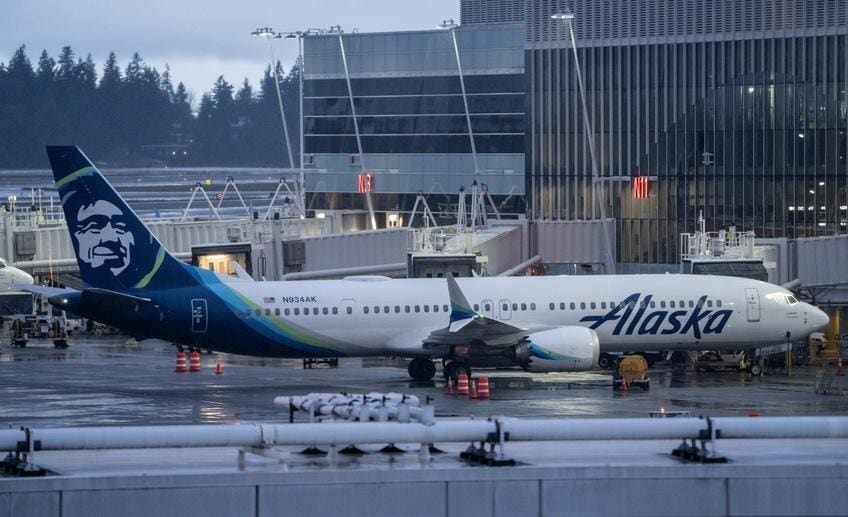Plea agreements are the most common way federal criminal charges are disposed of with judges approving plea agreements in 98% of all federal criminal cases
which is why Judge Reed O’Connor’s rejection of a plea agreement negotiated by lawyers for Boeing and Justice Department lawyers that would have resulted in a guilty plea by Boeing of conspiracy to defraud charges related to Boeing’s actions in deceiving the Federal Aviation Administration (FAA) prior to the fatal crashes of two Boeing 737 Max airplanes is so unusual. The plea agreement would have provided for Boeing to plead guilty to one count of conspiracy and pay a fine of $487 million.
Judge O’Connor, in particular had issues with two primary aspects of the agreement, most notably that the Justice Department rather than Judge O’Connor’s court would have approval over a monitor to be appointed pursuant to the agreement. The judge’s concerns were magnified by the fact that an earlier plea agreement that resulted in a deferred prosecution of Boeing in 2021 dealing with the same issues was deemed not to be particularly effective in the light of a door plug coming of in flight of an Alaska Airlines 737 Max airplane on January 5, 2024. At the time of the initial deferred prosecution agreement, Boeing admitted that, in a cost saving measure, two of its employees misled the FAA about a new flight control feature on the 737 Max whereby instead of requiring more intensive and expensive flight simulator training for pilots, computer based training would be sufficient.
The present conspiracy charges were brought in response to the Justice Department’s determination that Boeing had breached its obligations under its previous January 2021 Deferred Prosecution Agreement for” failing to design, implement and enforce a compliance and ethics program to prevent and detect violations of the U.S. fraud laws throughout its operations.”
In his rejection of the present plea agreement Judge O’Connor noted, “the parties have agreed to an independent compliance monitor in the plea agreement. In general terms, the monitor will ensure Boeing implements a program designed to prevent and detect violations of U.S. Fraud laws, and to ensure Boeing integrates this program throughout the company. The plea agreement provides that the retention of an independent compliance monitor is a special condition of probation, meaning if Boeing fails to retain the monitor, it will violate its probation, but the plea agreement prohibits imposing as a condition of probation a requirement for Boeing to comply with the monitor’s anti-fraud recommendations. Additionally, the independent monitor is selected by the Government, not the Court. Moreover, Boeing will have the opportunity to prevent the hiring of one of the six monitor candidates chosen by the Government.”
Judge O’Connor also singled out concerns regarding the Justice Department’s Diversity and Inclusion policies would affect the choice of the monitor. According to Judge O’Connor, “The Court is concerned with the Government’s shifting and contradictory explanations of how the plea agreement’s diversity-and-inclusion provision will practically operate in this case. While the government assures the Court that the Government will consider all possible monitors (i.e., all backgrounds, etc.) but will choose a monitor solely based on merit and talent, the Court is skeptical of this assertion.”
Judge O’Connor concluded that “The plea agreement’s process for selecting the anti-fraud monitor, including prohibiting the Court from considering violations of the monitor’s anti-fraud recommendations, improperly marginalizes the Court. The Government has monitored Boeing for three years now. It is not clear what Boeing has done to breach the Deferred Prosecution Agreement (“DPA”). The victims assert the ‘Government was forced to find that Boeing violated (the DPA) after the door fell of the Alaska airplane.’ Boeing hints that it may have legitimate arguments in opposition to the Government’s determination of breach. Regardless, taken as true that Boeing breached the DPA it is fair to say the Government’s attempt to ensure compliance has failed.”
According to Judge O’Connor, “It is fair to say the government’s attempt to ensure compliance has failed.” “At this point, the public interest requires the court to step in. Marginalizing the court in the selection and monitoring of the independent monitor as the plea agreement does undermines public confidence in Boeing’s probation.”
For Boeing and the Justice Department it is back to the drawing board in an effort to come up with an agreement that will pass muster with Judge O’Connor who has given them 30 days to update him on how they plan to proceed.
Read the full article here

